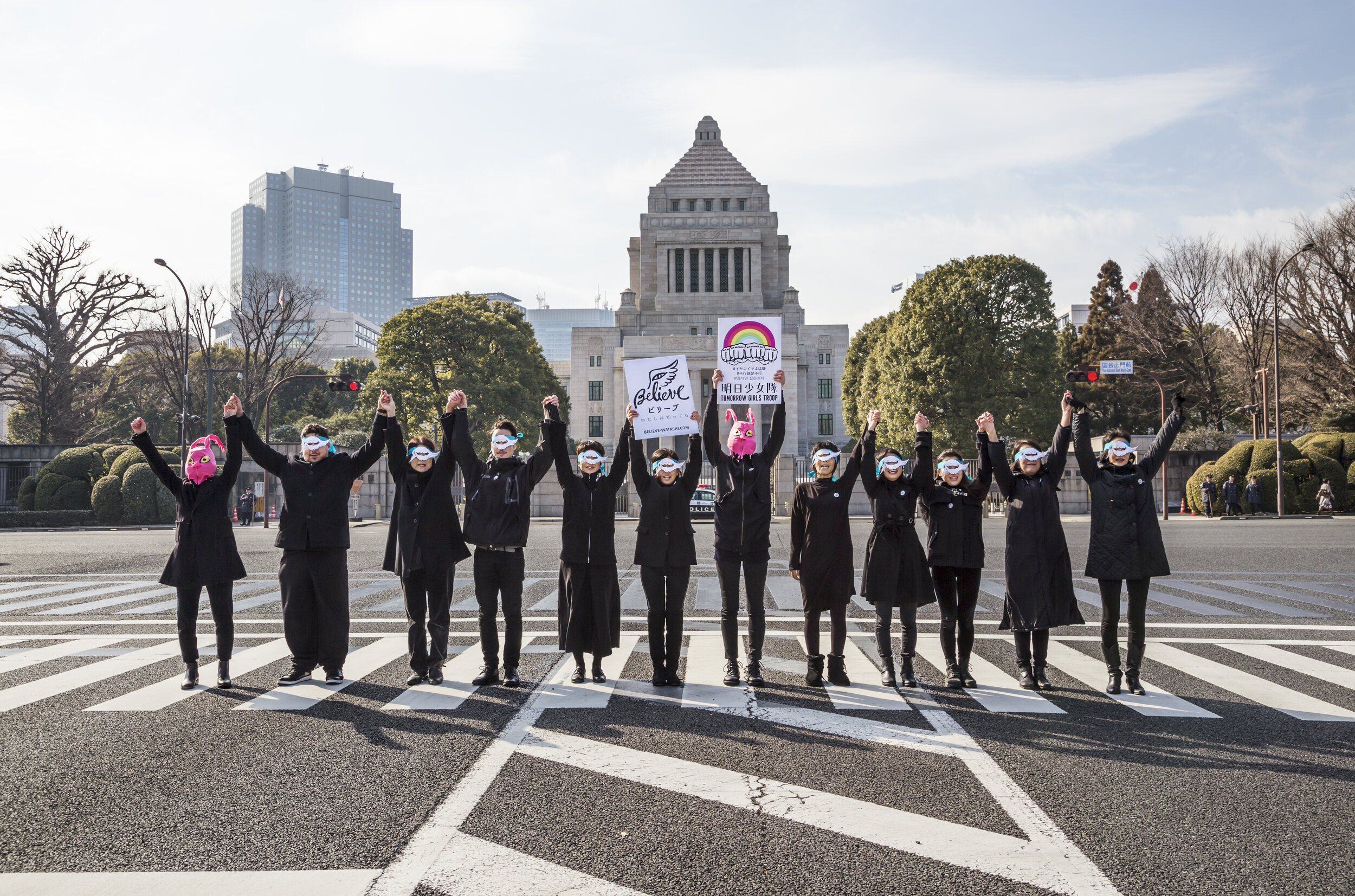Feminism in Japan
**This is a pseudonym used out of concern for the writer's safety. This piece and the writer are in no way affiliated with the real Grace Lee Boggs.
In countries and cultures all over the world, women have actively fought for their freedom, basic rights, and personal autonomy. The shape it takes varies from country to country, as feminism is fluid and adaptable to the location and culture in which it is needed. Though western feminism and its leaders are established in historical records, much less is known to the general public about the waves of feminism in eastern countries. When #MeToo hit the United States, the effects rippled and amplified in Asia. South Koreans held huge protests against hidden camera porn. Chinese activists pushed through internet censorship to share their stories and fight for change. Just this past October, in India, at least four dozen prominent men were outed as sexual predators. Feminists in the Philippines were crying out #babaeako (I am a woman) in response to president Rodrigo Duterte’s sexist comments. Unfortunately, backlash differs as well and the punishment can also be much more severe. Women in Asia face the threat of violence and doxxing. Thus activists, such as the Tomorrow Girls Troop (TGT), a fourth wave feminist art collective, are often seen wearing masks to conceal their identity; pictures and videos are also edited to blur the faces of the women.
Feminists in Japan face an incredible amount of difficulties. They must contend with a strong monocultural society which stigmatizes those who speak out or stand out. Direct action and civil disobedience is very much frowned upon. For women, specifically, it is seen as inelegant and unrefined. Thus, the public image of a “feminist” is very negative. Feminists are portrayed as being too outspoken, loud, physically unattractive, and undesirable. Part of this is due to a cultural desire to avoid confrontation and aversion to expressing feelings directly. Many people actively avoid discussing politics and other polarizing issues. While popular terminology such as “girl power!” is seen as female empowerment in the western world, the direct translation in Japanese “女子力” is used to describe girls who are sweet, cute, and good at traditionally feminine tasks. Even with these obstacles, feminists find their place in niche corners of social media. When, earlier this year, a female reporter came forward after being sexually harassed, a movement under the hashtag #WithYou exploded online. Unlike #MeToo, #WithYou gave women the space to speak in solidarity and acknowledge the uncomfortable truths that many women might not be comfortable sharing. Yet, because the public media and professional journalism is a male dominated industry, feminist events and leaders receive little to no coverage. When they do, they are often faced with extreme criticism and mocking tones. Thus, feminist groups rely on social media and alternative media outlets to spread their message. Just earlier this year, TGT made a video which touched upon the difficulties faced by feminists in East Asia, where it’s still too risky to say “me too”.
Though not directly translatable in many languages, “feminism” is not a western creation. In fact the fight for women’s rights has been actively recorded globally throughout history, with and without western influence. In Japan, the earliest recorded wave of feminism emerged in the late 19th century with trail blazers such as Toshiko Kishida, who traveled the country to speak on women’s rights. The 1920s saw leaders such as Fusae Ichikawa, Raicho Hiratsuka, and Oku Mumeo who established the New Women’s Association and fought for the right to vote and for better representation in the Japanese government. Raicho also helped found the feminist magazine, Seito, in 1912. In the 1970s, the Women’s Liberation movement took off after Mitsu Tanaka wrote the manifesto “Liberation from the Toilet”, calling for women to step up and free themselves from male sexual oppression. Recent feminist icons include Ueno Chizuko, a sociologist and pioneer of Women’s Studies at Tokyo University. She currently heads the Women’s Action Network aimed at spreading awareness and information about feminist issues to promote change. The fight against gender inequality in Japan often feels like an uphill battle, but women continue to persist and push forward.
Tomorrow Girls Troop is committed to spreading awareness of gender inequality issues in East Asia through art and social projects. In the Believe Campaign, a coalition of activists that advocated and lobbied for a change in the civil code regarding sexual violence, and the Kojien Campaign petitioned for a change in the definitions of feminist and feminism to include words like “equality” and “all genders.” Currently, TGT is working on a collaborative project with online media Honeyhands to raise awareness about sexual harassment specifically in art schools in Japan by distributing fliers with the #NotSurprised organization’s definitions of sexual harassment. TGT is also working on a photo series that specifically targets the groping problem on public trains. Activists in Asia, such as TGT, work to challenge the single story narrative of the suppression and submission of Asian women and further gender equality. Their voices deserve to be heard.
You can support our work and find more articles and information about feminism in East Asia by subscribing to our Patreon at https://www.patreon.com/tomorrowgirlstroop
Currently, we are trying to fundraise to do an art performance in Seoul and Tokyo that commemorates the story of comfort women. Please help us educate about comfort women so that their story isn't forgotten.
We have three fundraising pages in Korean, Japanese, and English. This is the English one
LINKS:
http://yonah.org/channel/women-japanese-feminist-movement/
https://www.japantimes.co.jp/culture/2018/02/03/books/exploring-leaps-bounds-japanese-feminism/#.W91AaZMzY2x-http://time.com/longform/me-too-asia-china-south-korea/
https://original.yahoo.co.jp/collection/movie/nishiharatakashi/1.html

